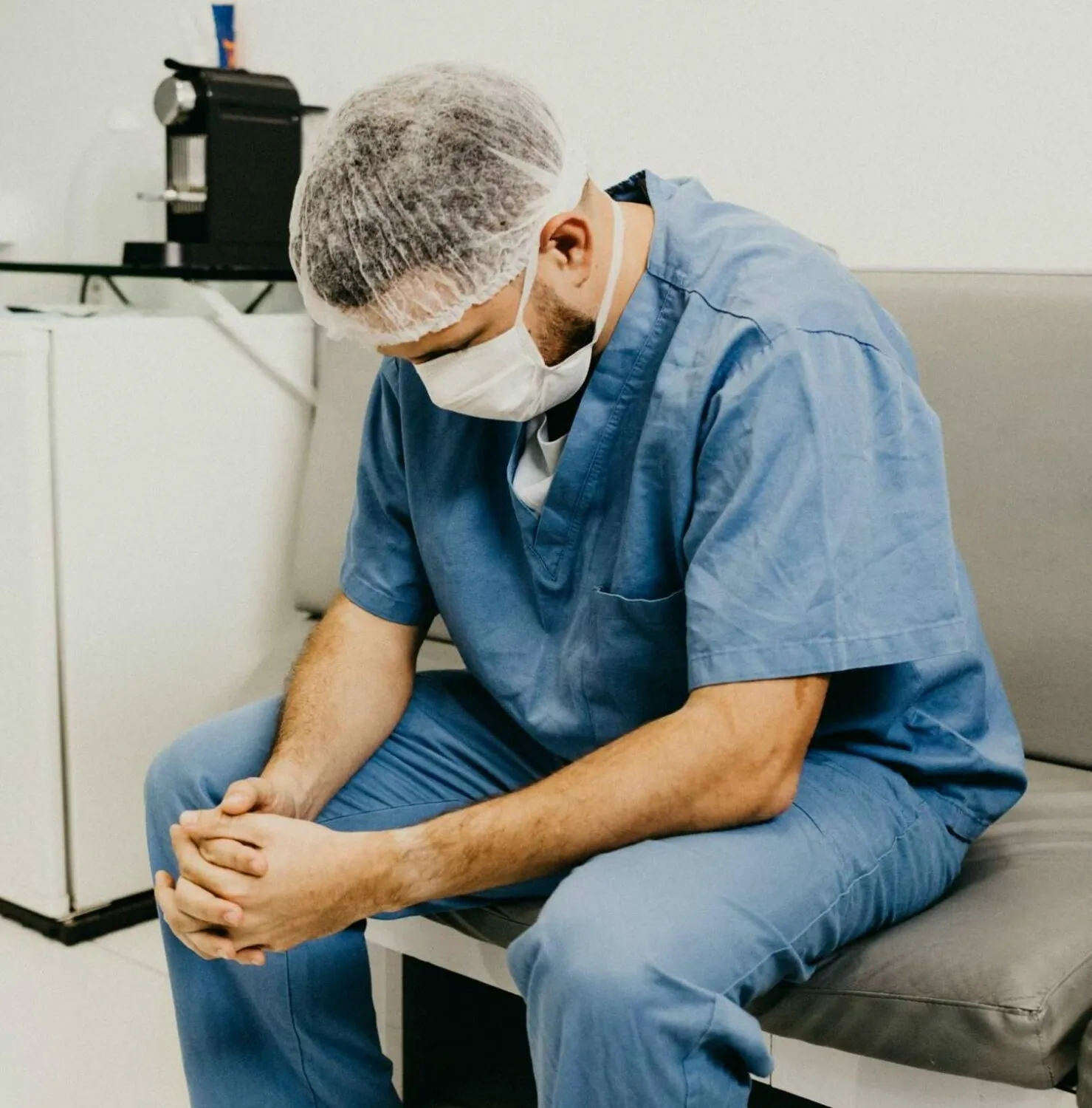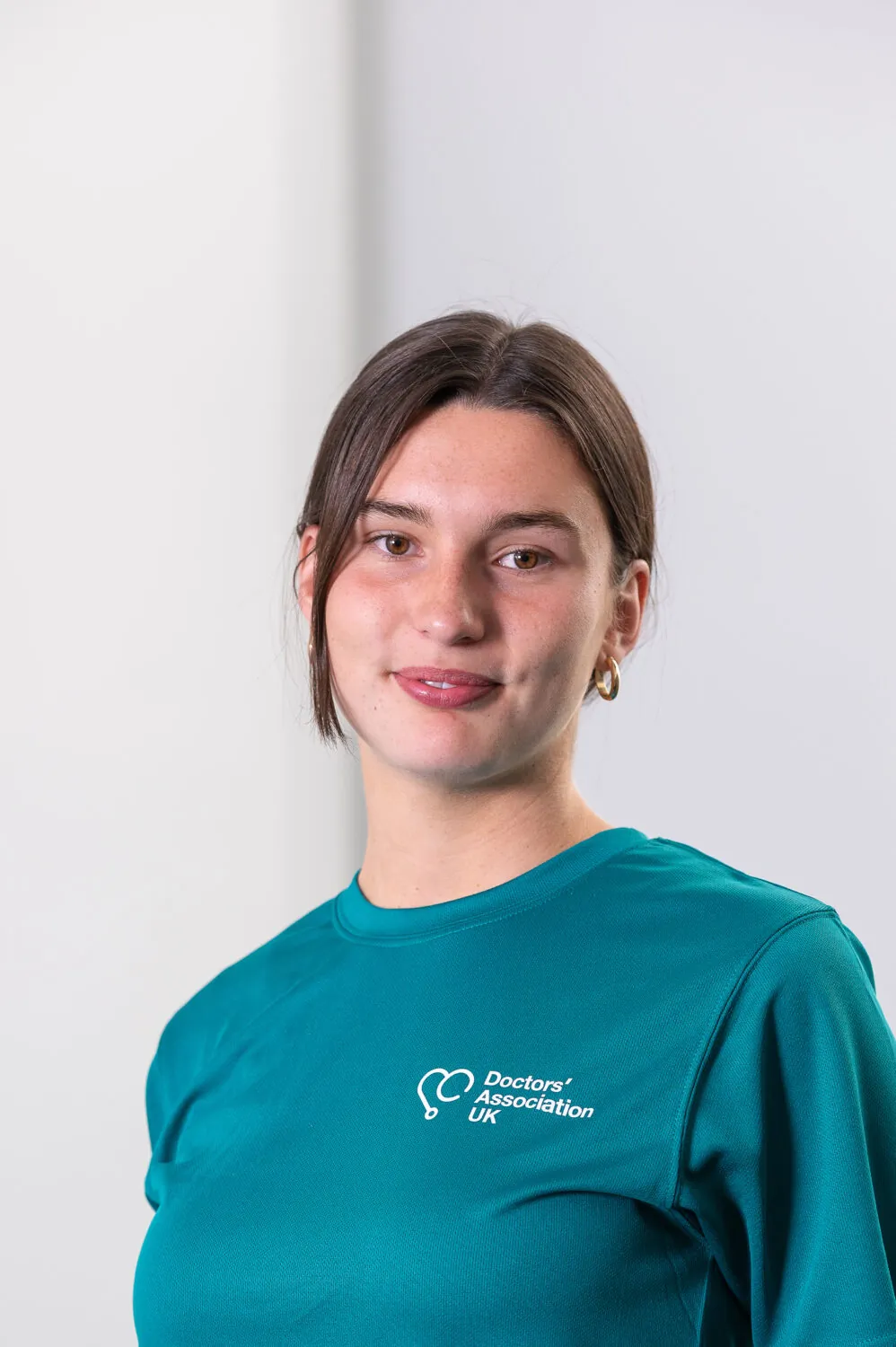
The volume of patients, the complexity of illnesses, and the unrelenting nature of the covid pandemic are having a huge impact on morale among our junior doctors, many of whom are experiencing their first winter in the NHS, write Nikki Nabavi and Clara Munro
A winter surge in hospital admissions is not unfamiliar. However, Public Health England’s annual flu and covid reports1 show that the current pressure on hospitals is not comparable to the usual winter influx. The difference in healthcare staff’s morale between the start of the pandemic and now is palpable, not least among those who are experiencing their first winter in post.
The nervous energy that characterised last spring has been replaced by chronic exhaustion. Natalie Ashburner, vice chair of the Doctors’ Association UK, says that doctors feel “battered by the unrelenting experience of caring for those with the virus.” And the idea of “just a bad day on call” is replayed without any opportunity for recovery.
Pushpo Hossain, a junior doctor in London, says, “When you are doing everything you can and you reach the ceiling day after day, morale falters.”
Alone
One major difference is that, during the first wave, doctors weren’t also providing routine care. This has now changed, and in addition there are long backlogs of patients, some of whom have had their treatment delayed for over eight months. It’s created an additional pressure on the NHS that wasn’t there during the first wave.
The Faculty of Intensive Care Medicine surveyed its members in November 2020, before the peak of the second wave, and reported that only 18% of respondents agreed that staffing levels in intensive care units were adequate.2At the peak of the second wave in January, junior doctors and medical students were being asked to volunteer in intensive care, sometimes through call-outs on social media.3
The BMJ heard concerns about staffing levels from several junior doctors around the country. “Staff are constantly having to isolate, which leaves us so understaffed,” says Amelia Seifalian, a foundation doctor in Watford. “Often at 9 pm we are asked on our hospital’s foundation year 1s’ WhatsApp group if anyone can go in and cover a night shift, as they are short of around four doctors.
“These shortages mean that juniors are left with more responsibility than usual, and things that you would usually ask your senior house officer for support on or double check with them, you are unable to, which makes us feel less confident.”
In a 2019 study published in the Journal of the Royal College of Physicians, 66.4% of doctors reported “feeling part of a team” as being the most important factor affecting their morale.4 Bethan Markall, a junior doctor based in Birmingham, told The BMJ that rota gaps also affected doctors’ sense of team support and camaraderie: “Juniors no longer have a team—it’s not unusual to work four different shifts, each with completely different teams.” This leads to a lack of team identity and reduced support.
Markall adds, “First year foundation programme teaching has only been online, meaning we have had less of a chance to meet our cohort or socialise with them, which can be quite isolating.”
This trend of isolation is highlighted by the stark contrast between the culture of free team meals and social support, as seen during the first wave of the pandemic, and the new socially distanced canteen booths that Seifalian describes, allowing for little to no mealtime debriefs with colleagues after difficult days. She emphasises the importance of reflections with colleagues. “I don’t want to talk about it to my family or housemates,” she says. “I don’t want to share the burden.”
Infantilised and ignored
Morale may be further eroded by feeling “infantilised” by colleagues. Freddie Stourton, a foundation doctor in the south of England, says that it can feel frustrating and exhausting to be thrown in at the deep end and then be “told off” for things that are out of your control. Senior staff can expect juniors to be familiar with their surroundings or a ward’s logistical practices, even though they are sometimes working with completely different teams on different shifts. Some reported being shouted at for “standing in the wrong place” five minutes after arriving at a new ward and while trying to help a patient.
While all doctors will be familiar with the “bad shift,” those who spoke to The BMJ said that the covid pandemic had brought an increasing frequency of these shifts among junior staff who lack the experience to contextualise these encounters.
The Doctors’ Association UK is among those who have called for greater provision of accessible mental health services for doctors. A spokesperson told The BMJ, “We have grave concerns about the effect that this pandemic is having on the mental health of NHS workers. We urgently need more specialist mental health services that are well funded, adequately resourced, and accessible to those who need them.”
The BMA, meanwhile, has called for medical staff to be prioritised for covid-19 vaccination to help reduce the absences that are leaving rotas short5 and subsequently affecting junior doctors’ ability to attend vaccination appointments themselves, while changes to shift patterns and night shifts6 make this challenging.
Stourton says that, in some ways, the shunting of junior doctors reflects an attitude that’s persisted throughout the recruitment process: doctors who have undergone years of training being “treated like numbers on a page, with patchy communication and changes in the process with little or no notice.”
Partha Kar, consultant in diabetes and endocrinology and a BMJ columnist, says that “what junior doctors have taken on in this pandemic has been nothing short of astonishing. Stepping into areas way outside their comfort zone, with specialties not being a barrier or given a second thought—their desire and determination to help without any hesitation has been fabulous to see and be part of, as well as inspiring.”
He concludes, “The least as seniors we can do is to find some time, if possible, to have a kind or caring word, or even a simple thank you, for their efforts in these extraordinary times.”





